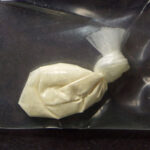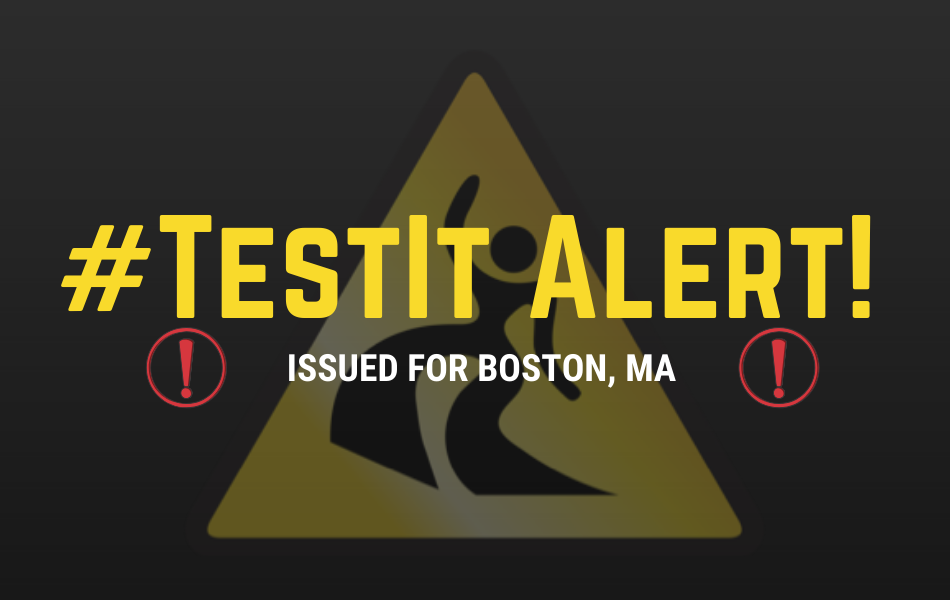#TestIt Alert: Bag of off-white powder sold in Boston, MA as heroin, but actually contains MDMB-4en-PINACA and fentanyl
Last Updated: August 15, 2023
By: Rachel Clark, DanceSafe Contractor
 A bag of off-white powder was sold in Boston, MA as heroin, but actually contains MDMA-4en-PINACA and fentanyl. The sample was submitted from Boston, MA.
A bag of off-white powder was sold in Boston, MA as heroin, but actually contains MDMA-4en-PINACA and fentanyl. The sample was submitted from Boston, MA.
The sample turned orange in the presence of the Marquis reagent, orange in the presence of the Mecke reagent, and light brown in the presence of the Mandelin reagent.
MDMB-4en-PINACA is a synthetic cannabinoid that is an NPS (New Psychoactive Substance) that recently entered the black market. Little is known about its toxicology profile and effects in humans; however, the sender of this sample indicated feeling “out of body… speedy, jittery”. It is not possible to immediately discern which of these effects would likely have been caused by caffeine as opposed to MDMB-4en-PINACA. However, anecdotal reports indicate that the inclusion of this substance in heroin bags has led to increased overdose incidents in Massachusetts (police reports describe erratic and sometimes violent behavior that is inconsistent with typical heroin overdoses, leading to confusion when attempting to treat patients on-scene). Synthetic cannabinoids as a class are sometimes known for producing effects that are similar to cannabis itself, but with increased levels of stimulation and dissociation, sometimes leading to life-threatening blood pressure spikes. Users often report unpleasant withdrawal symptoms following prolonged use – it’s important to note that synthetic cannabinoids are not the same as cannabis.
Fentanyl is active in minute quantities, which has made it a nationally-recognized contributor to the opioid crisis due to its concentrated (and often accidental) presence in pills and powders. It is popularly believed that fentanyl and its analogs are fatal when in contact with bare skin; this is a myth that has been repeatedly dispelled through scientific channels. If you suspect that someone is overdosing on an opioid, you are not at risk of intoxication simply by touching them or breathing the same air as them. Fentanyl and its analogs are absorbed through mucous membranes – an added layer of protection can be achieved by washing your hands after administering CPR on a person who has overdosed. Skin absorption would require very large quantities of fentanyl to be in contact with the dermis for prolonged periods of time, or direct contact with a wound.
Since fentanyl is typically (if not always) distributed unevenly throughout a sample, it is essential to use proper dilution techniques to dissolve the whole sample in water when testing it with a fentanyl test strip (this does not destroy the sample – after the test, the water can be left to evaporate out over a few days, leaving powder again). Symptoms of opioid overdose include slowed or stopped breathing and heart rate, blue-tinged extremities, loss of consciousness, and often vomiting. If you suspect that a person has overdosed on an opioid, call 911, administer Narcan whenever available, and place the person in the recovery position (if they are still breathing) to prevent asphyxiation on vomit. If a person is not breathing, perform CPR.
We urge our community to keep in mind that drug markets are expansive and that this adulterated heroin may appear in places other than its source and submission location. Using a reagent test kit can help provide a first line of defense as a presumptive (and not affirmative) process. Additionally, samples may be sent in to www.ecstasydata.org for in-depth laboratory testing. Test before you ingest to avoid taking misrepresented substances, and so you can adjust your intention, set, and setting appropriately to minimize risks. You can purchase fentanyl strips here.
The purpose of #TestIt Alerts is to alert the public to misrepresented substances circulating in their region. We neither condemn nor condone drug use, but rather want people to be aware of what they are ingesting so they can take steps to minimize risks.
Since 1998, DanceSafe has been keeping the electronic music and nightlife communities safe. As a 501(c)(3) nonprofit, we provide free harm reduction services at music festivals and nightlife events across the nation. All proceeds from the sales of our drug checking kits go back into the organization so we can continue to provide our services to our communities for free. By purchasing a kit, you are not only helping keep you and your friends safe, you are also contributing to the harm reduction movement. Thank you for your support!



